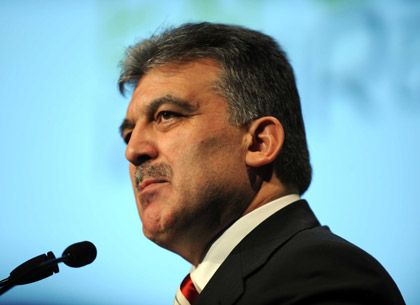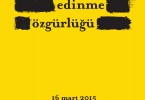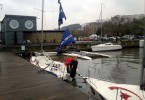Niyazi Dalyancı
“I have no concern personally about facing a trial. But the reputation of the presidency should not be harmed,” President Abdullah Gul told journalists today commenting on a recent court ruling that might make him face a trial.
A penal court in Ankara overruled a decision by the Ankara Chief Prosecutor that Gul has political immunity that protects him from standing trial at a 12-year-old case against his former Welfare Party (RP) regarding the cash given annually to all political parties from the state treasury to support their activities. In 1997, RP received the equivalent of 1,000,000 new Turkish currency but failed to return it after the Constitutional Court closed the party on charges of anti-secular activities. A later court ruling established that party administration produced forged documents to prove that the money had already been spent.
Gul said that he was one of the ten deputy chairmen of RP at the time and he was not responsible for the financial affairs of the party. “I was in charge of foreign affairs,” he said. “When this subject was raised at the parliament when I was serving as prime minister and then as foreign minister I asked my immunity to be lifted. But at the time this was not done,” he explained.
Necmettin Erbakan, the leader of RP was finally convicted to 2 years 4 months in prison on charges of forgery by a penal court in Ankara and the sentence was confirmed by the Supreme Court. Erbakan was able to postpone going behind bars several times producing medical reports claiming that his health was not suitable to serve time in prison. Meanwhile, the Progress and Development Party (AKP) group passed legislation, dubbed “The Erbakan law” in the parliament that would allow convicts above the age of 75 to serve prison terms less than 3 years under house arrest. Following the new legislation passed as a favor to their old leader by AKP members, on May 26 last year Erbakan went to his summer house on the shores of the Marmara Sea to serve his term at home. In August, Erbakan’s lawyers applied to the Justice Ministry with yet another medical report asking for a presidential amnesty on grounds that the old politician “has been suffering from chronic illnesses.” Gul granted amnesty to Erbakan on August 15, 2008.
President Gul as the deputy chairman of RP was among the 72 party administrators tried during the initial case. But after Gul was elected to the parliament in 2002, the proceedings against him stopped because he enjoyed parliamentary immunity.
After his election to the presidency, the case against Gul was dropped by the Chief Ankara Prosecutor on grounds of “legal infeasibility.” Legal tribulations of the Turkish President was going to end there and the if it were not for a retired Supreme Court judge, Cahit Nalbantoglu, who filed a complaint with the Sincan Penal Court claiming that he “incurred financial damage because of the taxes he paid to the treasury were wasted in an improper way.” He demanded that Gul should be tried because of his responsibility in the “Lost trillion case.”
The court ruled the interpretation that parliamentary immunity also covers the president is “legally groundless.” There is vagueness in the legislation about how much immunity the head of state should enjoy because, “the lawmakers naturally did never consider the possibility that a person elected as president might have committed crimes before he is elected to the post,” the court ruling said.
Now the ruling will be delivered to the Chief Ankara Prosecutor who will either open a case against Gul or decide to repeal it. If the ruling is repealed, the file will go to the Justice Ministry which most probably will decide against taking Gul to court. The final ruling in the case belongs to the Supreme Court.
Speaker of the Parliament says “No way!”
Koksal Toptan, the Speaker of the Grand National Assembly said there is no way that the president can stand trial on such a petty charge. “According to our legislation, the presidents can only be tried on charges of treason,” he added.
Cemil Cicek, deputy prime minister also pointed out to the impossibility of such a case against the president, “It is unthinkable that while even the members of the parliament enjoy immunity, the president has been left out of this right,” said Cicek.







